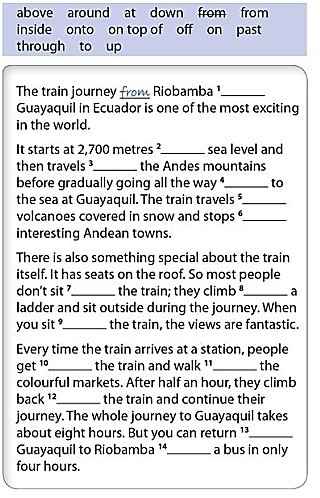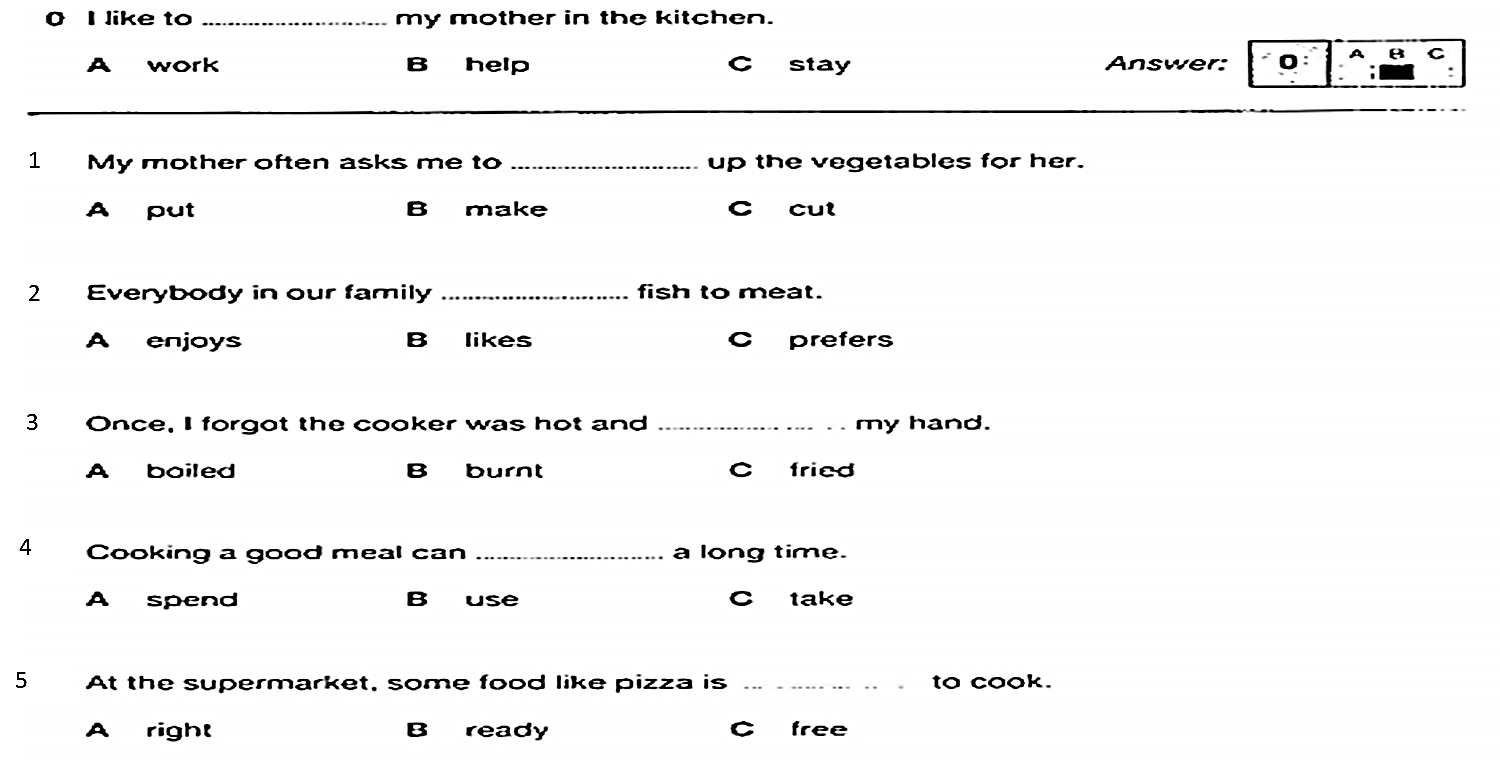Các câu hỏi tương tự
Circle the best answerRead the text and complete it with the prepositions in the box. Read the sentences about cooking. Choose the best answers
Đọc tiếp
Circle the best answer
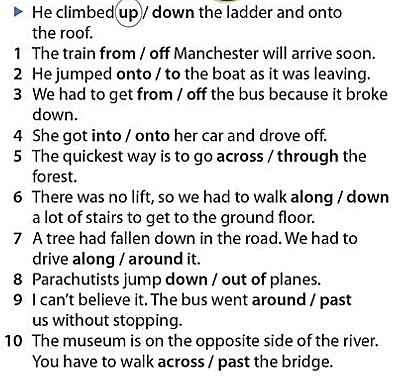
Read the text and complete it with the prepositions in the box.
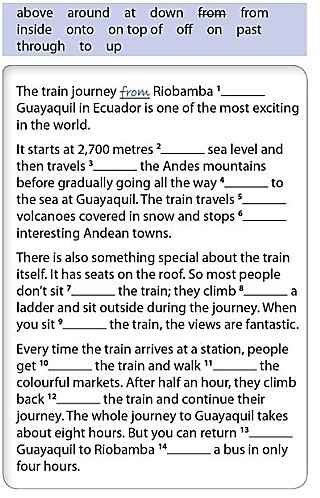
Read the sentences about cooking. Choose the best answers
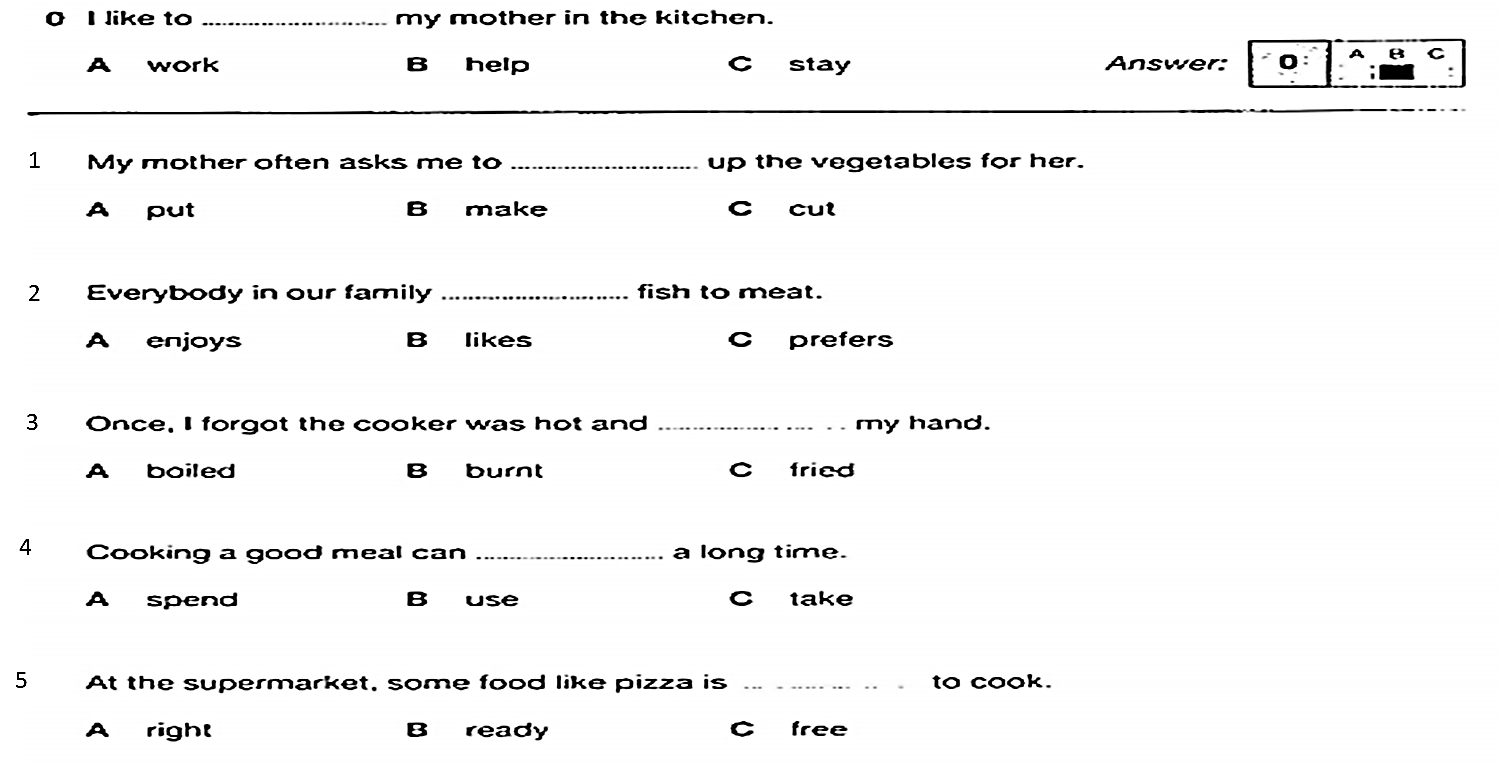
Complete the expressions with AT, ON or IN . Write answers to the questions using the words in the box and the correct preposition. Read the sentences about cooking a meal. Choose the best answers
Đọc tiếp
Complete the expressions with AT, ON or IN
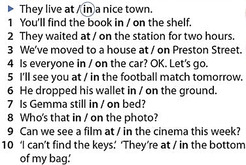
. Write answers to the questions using the words in the box and the correct preposition.
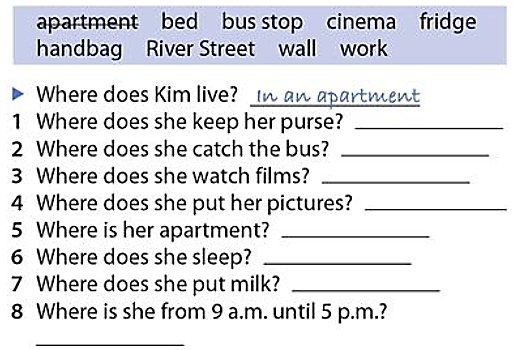
Read the sentences about cooking a meal. Choose the best answers
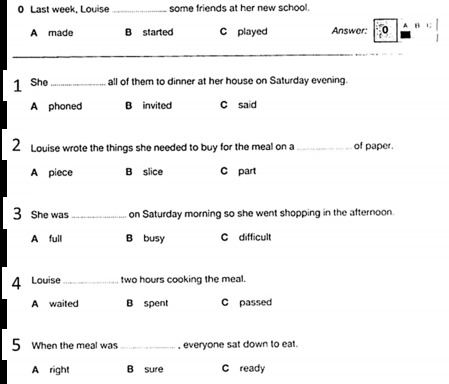
Complete the dialogue with A, AN, SOME, THE or Ø (no article).
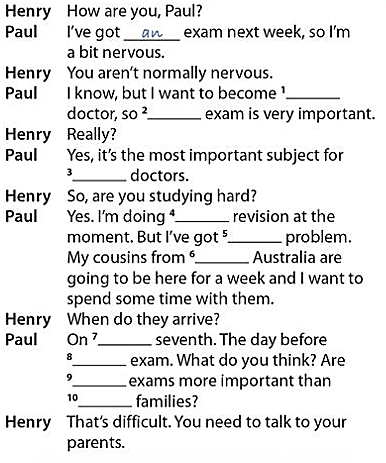
Read the sentences about going shopping. Choose the best answers.
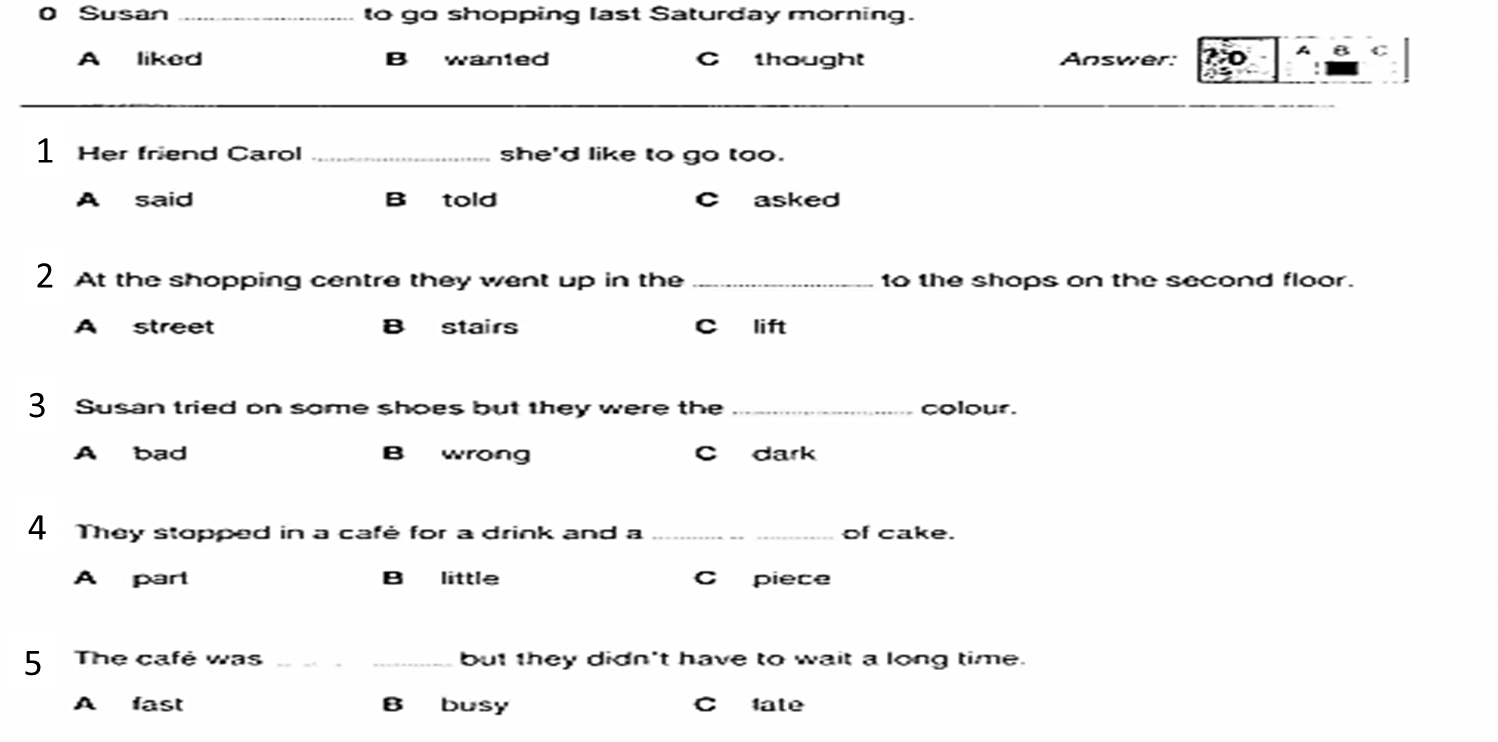
Read the sentences about a shopping trip. Choose the best answers. 
EX5. Read and choose the best answer to complete the passage:When you are in Singapore, you can go about (1) ........... taxi , by bus, or by underground. I myself prefer the underground (2) ............. it is fast, easy and cheap. There are (3) ........... buses and taxis in Singapore and one cannot drive along the road (4) ........... and without many stops, especially on the Monday morning. The underground is therefore usually quicker (5) ............. taxis or buses. If you do not know Sing...
Đọc tiếp
EX5. Read and choose the best answer to complete the passage:
When you are in Singapore, you can go about (1) ........... taxi , by bus, or by underground. I myself prefer the underground (2) ............. it is fast, easy and cheap. There are (3) ........... buses and taxis in Singapore and one cannot drive along the road (4) ........... and without many stops, especially on the Monday morning. The underground is therefore usually quicker (5) ............. taxis or buses. If you do not know Singapore very (6) ............. , it is difficult (7) ............. the bus you want. You can (8) ............ a taxi , but it is (9) .............. expensive than the undergroud or a bus . On the undergroud, you find good maps that tell you the names of the stations and (10) ........ you how to get to them, so that it is easy to find your way.
1. A. at B. in C. by D. to
2. A. but B. because C. when D. so
3. A. many B. a lot C. few D. much
4. A. quick B. quickly C. quicker D. more quickly
5. A. so B. like C. than D. as
6. A. well B. good C. fine D. bad
7. A. to find B. find C. finding D. found
8. A. go B. take C. get D. travel
9. A. less B. more C. most D. so
10. A. give B. talk C. show D. take
Complete the conversation between two friends outside a cinema. What does Mary say to Sarah? Read the article about bears. Then choose the best answers.Read the note and the ticket. Fill in the information in Mary’s diary.
Đọc tiếp
Complete the conversation between two friends outside a cinema. What does Mary say to Sarah?
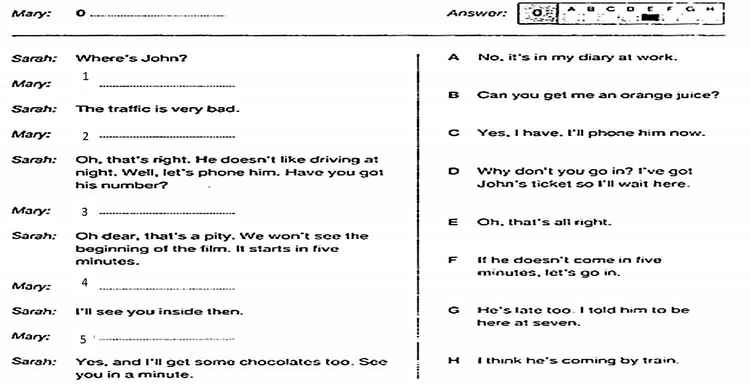
Read the article about bears. Then choose the best answers.
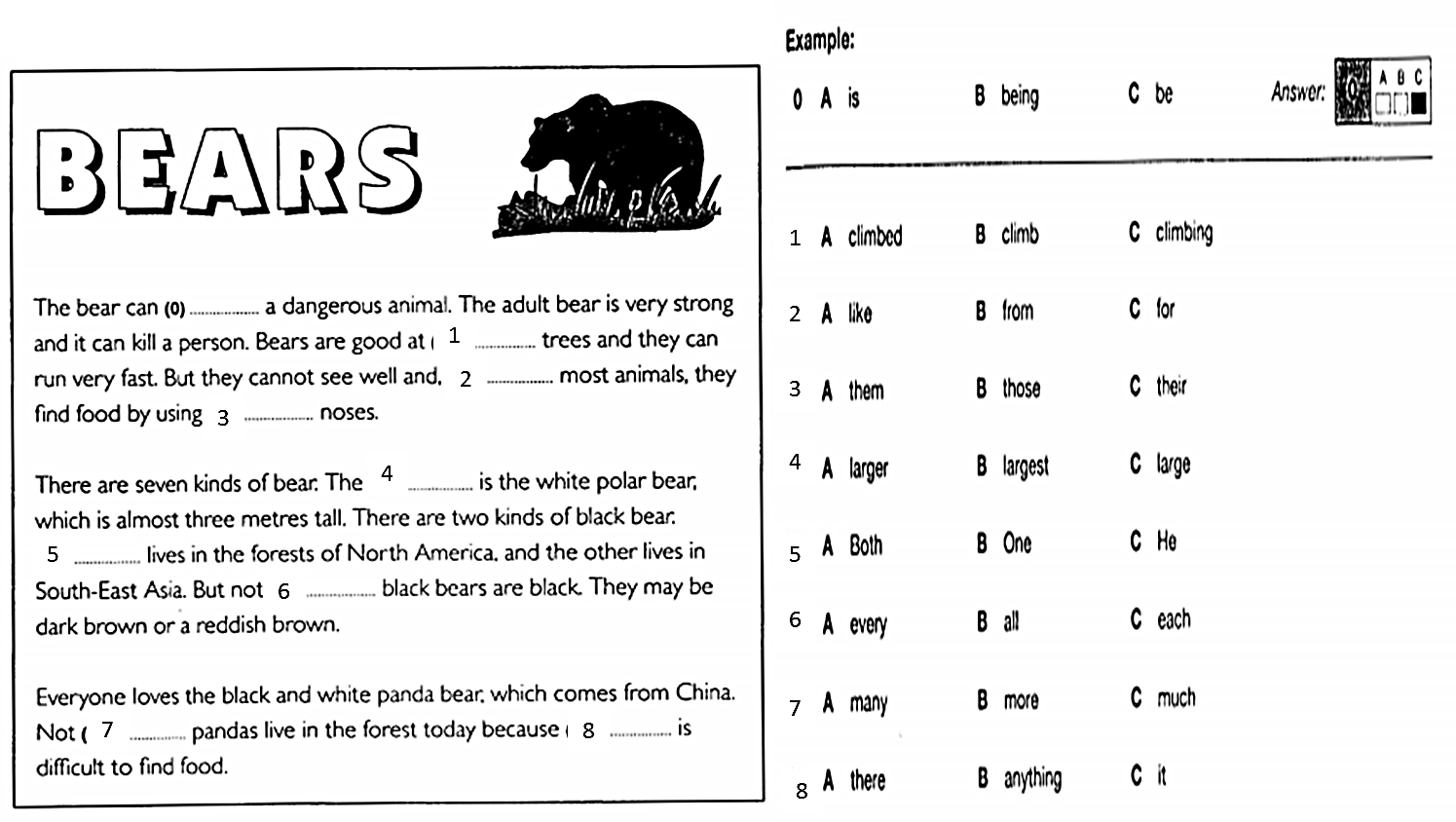
Read the note and the ticket. Fill in the information in Mary’s diary.
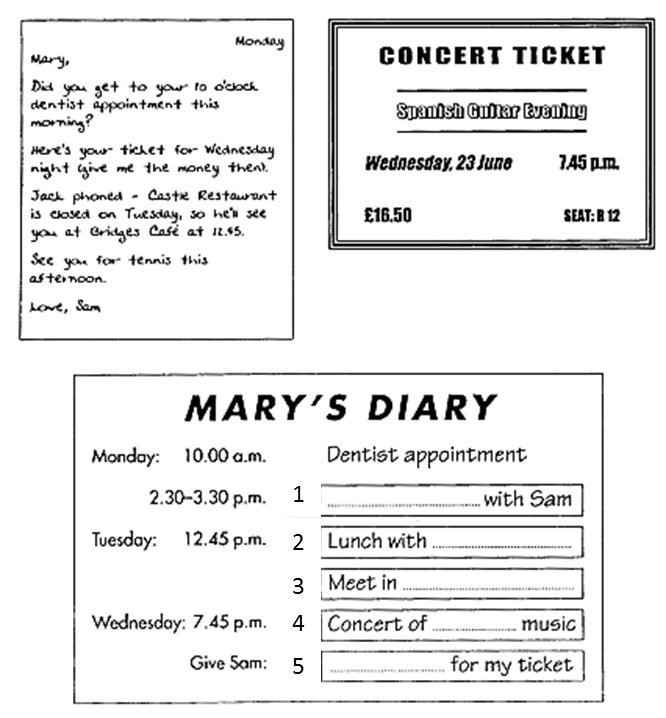
VI. Read the following passage and choose the item (A, B, C or D) that best answers each of the questions about it. A hobby can be almost what a person likes to do in his/ her spare time. Hobbyists raise pets, watch birds, or hunt animals. They also climb the mountains, fish, ski, skate, and swim. They also paint pictures, attend concerts and play musical instruments. They collect everything from books to butterflies and from shells to stamps.People have hobbies because these activities offer e...
Đọc tiếp
VI. Read the following passage and choose the item (A, B, C or D) that best answers each of the questions about it.
A hobby can be almost what a person likes to do in his/ her spare time. Hobbyists raise pets, watch birds, or hunt animals. They also climb the mountains, fish, ski, skate, and swim. They also paint pictures, attend concerts and play musical instruments. They collect everything from books to butterflies and from shells to stamps.
People have hobbies because these activities offer enjoyment, friendship, knowledge, and relaxation. Sometimes they can bring financial profit. Hobbies also bring interesting activities for people who have retired. People, rich or poor, old or young, sick or well, can follow a satisfying hobby, regardless of their age, position, or income.
Hobbies can help a person’s mental and physical health. Doctors have found that hobbies are available in helping patients suffering from physical or mental illness. Hobbies give these patients activities to do, and provide interests that prevent them from thinking about themselves.
1. According to the passage, a hobby is what a person likes to do when…………………
A. he/ she has free time | C. he/ she is at home |
B. he/ she is at work | D. he/ she is busy |
2. The underlined word they in the passage refers to……………………
A. people | B. hobbies | C. activities | D. profits |
3. Which of the following is NOT mentioned in the passage as an advantage of having hobbies?
A. enjoyment | B. relaxation | C. knowledge | D. surprise |
4. The word “income” is closest in meaning to………………………..
A. salary | B. job | C. loan | D. career |
5. According to doctors, hobbies are helpful to……………………….
A. patients’ physical health | B. patients’ mental health |
C. patients’ material life | D. patients’ physical and mental health |
I. Read the text below and select the best option for each blank. Write your answers (A, B, C, or D) in the box provided. (10 marks)EarthquakesAn earthquake is a trembling of the earth’s surface and is caused by natural (1) ______ within the earth itself. About a million earthquakes are (2)______ each year, but the vast (3)______ are small and cause little or no (4)______. (5)______ the energy of a large earthquake can be 10,000 times more powerful than that of the first atomic bomb. The terrib...
Đọc tiếp
I. Read the text below and select the best option for each blank. Write your answers (A, B, C, or D) in the box provided. (10 marks)
Earthquakes
An earthquake is a trembling of the earth’s surface and is caused by natural (1) ______ within the earth itself. About a million earthquakes are (2)______ each year, but the vast (3)______ are small and cause little or no (4)______. (5)______ the energy of a large earthquake can be 10,000 times more powerful than that of the first atomic bomb. The terrible earthquake that (6)______ the cities of Tokyo and Yokohama in Japan in 1923 caused an estimate of 142,807 deaths. Even (7)______ disastrous was an earthquake in China when about 655,000 people died.
Most earthquakes (8)______ under the ocean bed. Many of these are harmless, but sometimes tidal waves are set up on the (9)______. The waves are not high in the middle of the ocean, but they travel quickly, and may be huge as they rush up a shallow shore. Such devastating walls of water can (10)______ widespread destruction.
1. A. resources B. strength C. forces D. powers
2. A. shown B. caught C. studied D. recorded
3. A. area B. majority C. number D. amount
4. A. hurt B. injury C. damage D. pain
5. A. Although B. Yet C. Therefore D. Similarly
6. A. destroyed B. covered C. threatened D. affected
7. A. more B. if C. though D. so
8. A. stay B. occur C. come D. attack
9. A. ground B. air C. mountain D. surface
10. A. stop B. cause C. influence D. change
II. Read the passage below and choose the answer that best expresses the meaning of the words in bold type. Write your answer (A, B, C or D) in the box provided. (5 marks)
No one really likes going to the doctor, even though it is the sensible thing to do when feeling ill. Most people tend to postpone making an appointment in the hope that things will get better in a day or two. Yet a common cold or mild case of the flu can sometimes be discussed with a doctor over the telephone. Bed rest and a lot of liquids may be the best treatment. However, the sooner a person reports any abnormal conditions to a doctor, the sooner he or she can intervene and treat the problem. Any illness that lasts longer than a day or includes a fever should be looked at. Early treatment may impede the progress of an illness and curtail its spread to other family members. It is always best to contact a doctor. Doctors should decide whether their patients need appointments.
1. When people postpone something, they
A. announce it publicly. B. put it off until later.
C. remember to do it. D. refuse to do it later.
2. A lot of liquids means
A. taking a lot of medicine. B. doing a lot of exercise.
C. eating a lot of food. D. drinking a lot of water.
3. An abnormal condition is one that is
A. very common. B. illegal.
C. not normal. D. expensive to treat.
4. When people impede the progress of something, they
A. blow it up. B. improve it. C. slow it down D. change it.
5. When people curtail something, they
A. spread it quickly. B. give it away.
C. cut it short or reduce it. D. move it about.
READING 2I/Read the following passage and choose the option (A, B, C or D) that best answers each question.Monash University is a public university located in Melbourne, Australia. It was established in 1958 by an Act of the State Parliament of Victoriandis the second oldest university in the State of Victoria. The university was named after the prominent Australian general Sir John Monash. This was the first time in Australia that a university had been named after a person, rather than a city o...
Đọc tiếp
READING 2
I/Read the following passage and choose the option (A, B, C or D) that best answers each question.
Monash University is a public university located in Melbourne, Australia. It was established in 1958 by an Act of the State Parliament of Victoriandis the second oldest university in the State of Victoria. The university was named after the prominent Australian general Sir John Monash. This was the first time in Australia that a university had been named after a person, rather than a city or state. IT was originally intended to have an emphasis on science and technology. However, it quickly expanded beyond this. In its early years, it offered undergraduate and postgraduate degrees in engineering, medicine, science, arts, economics and politics, education and law. Initially, it was best known for its strong research capacity in the sciences and for its innovative teaching in law and medicine.
(Adapted from https://en.wikipedia.org/wiki/Monash_University)
1. Monash University was named after _____.
A. a city
B. a state
C. a man
D. a woman
2. Monash University is _____.
A. over 100 years old
B. 50 years old
C. about 60 years old
D. over 70 years old
3. The university originally focused on _____.
A. engineering and science
B. science and technology
C. law and education
D. economic and politics
4. The university was famous for its _____.
A. research capacity in sciences
B. innovative teaching in law and medicine
C. postgraduate degrees
D. both A and B
5. Monash University is the _____.
A. oldest city in Australia
B. second oldest university in Australia
C. second oldest university in the state of Victoria
D. oldest university in Victoria
II/Read the passage and then decide whether the sentences are True (A) or False (B).
Vietnamese cuisine is unique. It balances five tastes: spice, sour, bitter, salt and sweet. According to Vietnamese tradition, each of the tastes corresponds with an organ of the body. Cooks also try to include five types of nutrients – powder, water, minerals, protein and fat, as well as five colors – white, green, yellow, red and black – in each dish. Therefore, the dishes are balanced and colorful, attractive to both the eye and the tongue. There is also a balance between “heating” and “cooling”. Duck meat, for example, is considered cool, and is thus served in summer with ginger, which is considered warm. Chicken, on the other hand, is a warm food, so it’s usually eaten in the winter, and served with a sour sauce, which is considered cool.
(Source: http://epicureandcultrure.com/vietnamese-cuisine-french-influence/)
1. Which number is important in Vietnamese cuisine?
A. Three B. Four C. Five D. Six
2. Duck meat is often eaten with ginger because it is …..
A. delicious B. warm C. cool D. hot
3. In winter, Vietnamese people usually eat chicken with sour sauce because chicken is considered …..
A. cool B. warm C. nutritious D. good
4. Which colour is NOT usually include in Vietnamese food
A. Black B. Red C. Blue D. Yellow
5. Why do cooks include different tastes, colours and nutrients in Vietnamese food?
A. To make it pleasing to the eye. B. To make it good for health
C. To make it attractive to the tongue D. All of the above.
